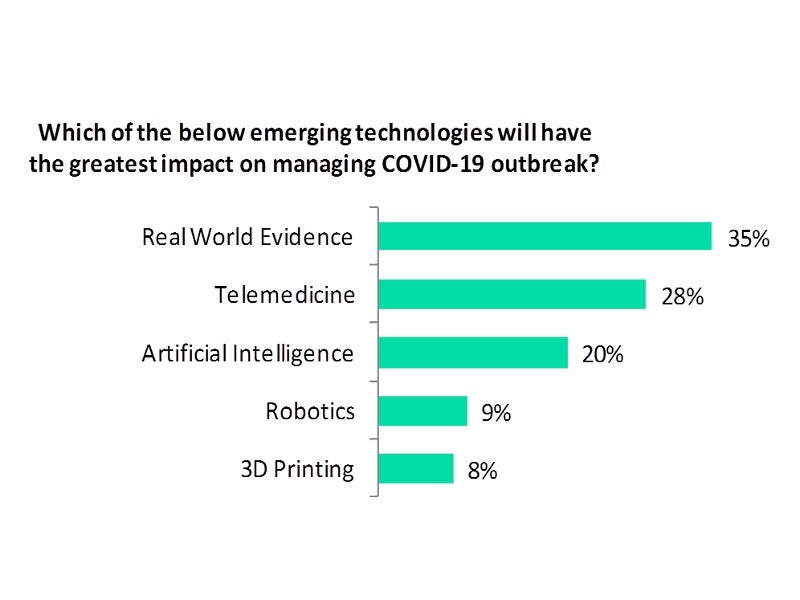
New-age emerging technologies are projected to have a significant impact on managing the coronavirus pandemic (COVID-19).
Verdict has conducted a poll to assess which emerging technology among artificial intelligence (AI), robotics, 3D printing, telemedicine, and real-world evidence will have the biggest impact on managing the COVID-19 outbreak.

Discover B2B Marketing That Performs
Combine business intelligence and editorial excellence to reach engaged professionals across 36 leading media platforms.
Analysis of the results shows that real-world evidence will have the biggest impact, followed by telemedicine and AI.
A majority 35% of the respondents opined that real-world evidence will impact the most, while 28% felt that telemedicine will have the greatest impact, followed by 20% for AI and a lesser 9% and 8% voting respectively for robotics and 3D printing.
The analysis is based on 935 responses received between 06 April and 20 April.


US Tariffs are shifting - will you react or anticipate?
Don’t let policy changes catch you off guard. Stay proactive with real-time data and expert analysis.
By GlobalDataEmerging technologies in managing COVID-19 outbreak
Health agencies and governments are turning to real-world evidence from observational studies and containment strategies to assess potential approaches to fight the COVID-19 spread. New technologies are enabling data regarding the disease to be shared in real-time to identify the best practices and therapies for the disease.
While telemedicine helps in directing healthcare workers and resources towards more serious cases, many countries are using artificial intelligence (AI) to curb the spread of COVID-19 by providing information on early warnings and alerts, tracking and prediction, treatments, diagnosis and social control.
Certain AI programmes have been successful in predicting the spread of the disease by providing key insights to authorities to take the necessary steps.
Robots have been widely deployed in countries such as China and South Korea to deliver food and medicines to COVID-19 patients. Robots and drones have also been used to implement social distancing measures, cleaning and disinfection, and patient examination.
3D printing is being leveraged to manufacture much-needed healthcare equipment such as face masks, nasal swabs for test kits and personal protection equipment. The technology is also being used to support medical device manufacturers in producing key components for critical care devices such as ventilators.




